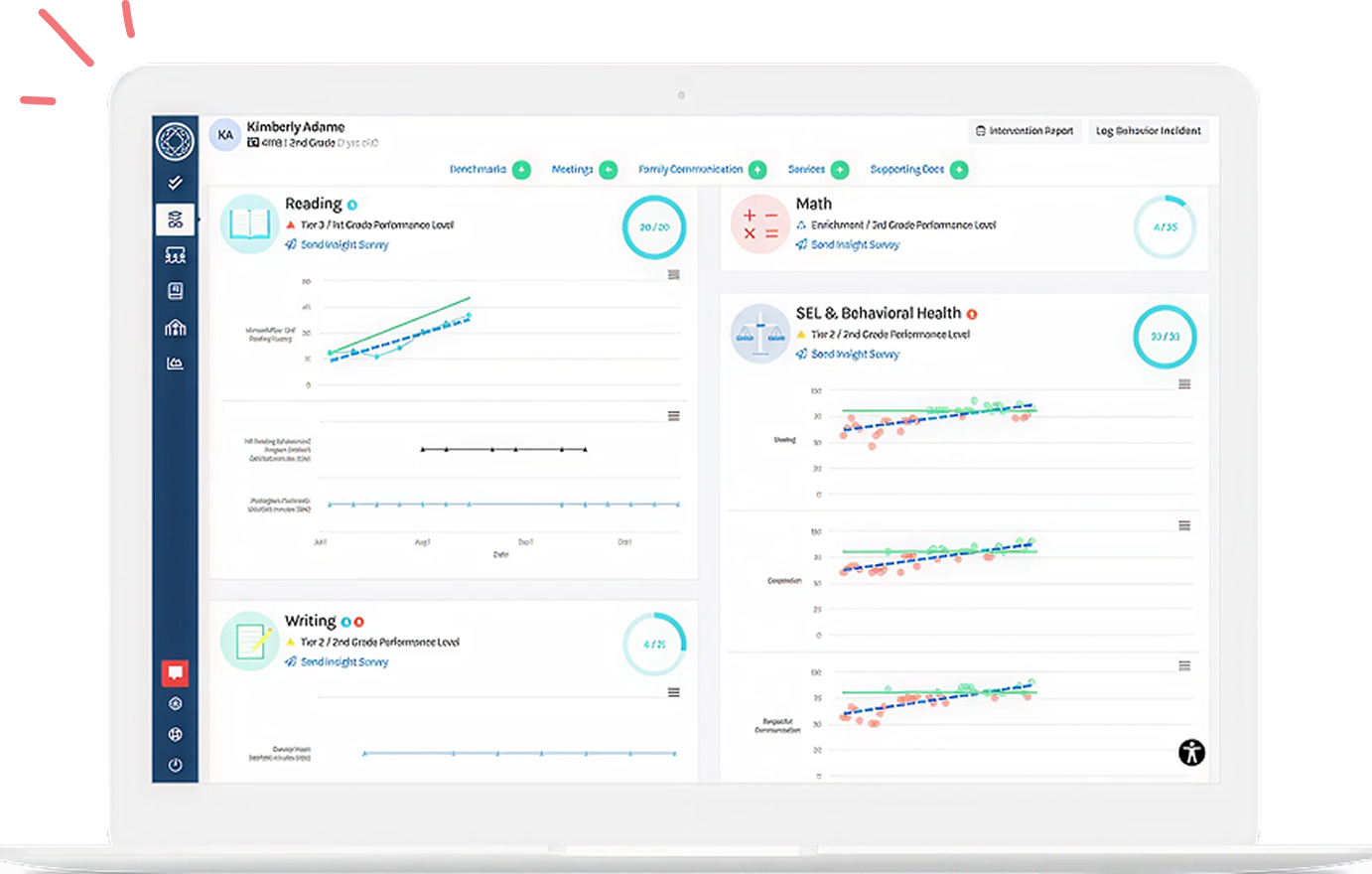Executive functioning in the educational setting is often used synonymously with skills associated with focus and organization. While this can be true in some circumstances, executive functioning skills are defined as “the mental processes that enable us to plan, focus attention, remember instructions, and juggle multiple tasks successfully” (Harvard University). To find success with these skills, it is important to have the tools to filter distractions, prioritize tasks, set and achieve goals, and regulate impulses. The complexity of executive functioning and the interconnectedness of the associated soft skills are essential for academic achievement.
As educators, we can integrate practices and strategies that support our students' cognition around executive functioning to build their own personal toolkits. The resources provided here are intended to be tailored and utilized as stepping stones to do just that.
Executive Functioning in Schools: Top Takeaways
- Build routines that support focus and self-regulation, such as daily check-ins and post-it note agendas.
- Teach organization strategies explicitly using note catchers, visual cues, and discrete highlights.
- Small teacher moves matter, and the educator checklist helps you make quick, proactive adjustments that support student success.
Don't Have Time to Read?
👉 Download the PDF version of the toolkit here.
Daily Self Check-In Template
Need a fun way to check in with your students each day? Incorporating a daily self check-in can take the guesswork out of how your students arrive to class, and give an immediate sense of who may need more support (e.g., individual check-in, energy break) with regulation prior to academic instruction. These check-ins can also provide more information about trends you are seeing for all students in order to respond more proactively to the whole group.
Utilize the template provided to create your daily self check-ins. Older students also love them!
Daily Self Check-In Template: Access Editable Google Slides Version
Shareable Classroom Management Plan
Concrete classroom routines and procedures can save students who struggle with executive functioning, time, and mental energy.
Having an explicit classroom management plan, with clear guidance for routines and procedures shared with students and families, and then directly taught and practiced, allows students to understand what is expected of them rather than trying to figure it out for themselves. Post the most-used procedures and routines around the room and refer to them often during necessary activities.
Shareable Classroom Management Plan: Access the Editable Google Doc Version
Organizational Note-Catcher for Strategic Studying
Studying is a strategic process that can be supported and directly taught. By creating note-catchers that act as study guides, you can prioritize essential learning to be used to practice prior to an assessment.
Here are some tips on utilizing the template in your classroom:
-
Prior to a unit or lesson, provide students with key topics, vocabulary words, or essential questions generated on the left. Color-coding the paper also supports organizational efforts and the location of key materials.
-
As instruction is provided, students write their answers in the notes column on the right.
-
Prior to an assessment, provide class time for students to practice studying with their note-catchers. Students can fold the paper in half individually or with a partner. They should work to provide all the information they can about the topic outlined on the left. From there, they can highlight the information on the right that they still need to learn for further review. Having students practice with a partner and individually using their note catcher can give them options at home, which is a great way to incorporate parent involvement!
Organizational Note Catcher for Strategic Studying: Access the Editable Google Doc Version
Discrete Highlights for Key Takeaways
A misconception about executive functioning is that it is hard for a student to focus. The actual concern, however, is that the student is focusing on ALL of the information rather than utilizing cues such as tone, body language, and repetition to attune to the key takeaways of the lesson. By incorporating and teaching discrete highlights such as starring information, adding a sound prior to a key idea, or adding a takeaway slide, you can begin cueing students to focus on these concepts.
A helpful hint is pointing out the non-discrete cue you use when you get to these discrete highlights. For example, “My voice slows down when I get to this slide because this information is important.” Over time, you may scaffold these highlights with practice lessons for students to begin identifying the non-discrete cues for themselves. Utilize the discrete highlights provided for your next lesson.
Discrete Highlights: Access the Editable Google Slides Version
Post-It Note Agenda
For some students, it can be challenging to transition from one task to another without getting distracted. When this happens, students may get lost in where they are supposed to be and what they need to do. Utilizing ‘post-it notes’ with your daily agenda can support students in getting back on track with the lesson.
Highlight key activities throughout your lesson and create a checklist agenda (resource template below). Creating them online allows you to copy and paste your lesson plan directly, saving time and energy. Just place a piece of tape on the back after printing and provide them for students who need extra support.
Post-It Note Agenda Template: Access the Editable Google Doc Version
Executive Function Educator Checklist
Supporting executive functioning in the classroom does not have to be a huge lift for educators. Often, small teacher choices can help many students who show need. The Executive Function checklist provides quick adjustments educators can make proactively or in the moment.
It is also helpful to involve the student when using these moves. Checking in with them can help them identify what works and does not work for them as they age, and this ultimately helps them build their confidence and ability to advocate for themselves.
Executive Function Educator Checklist: Access the Editable Google Doc Version
Download the Executive Function Toolkit PDF
Citation:
![[Guest Author] Meagan Gillcrist-avatar](https://www.branchingminds.com/hs-fs/hubfs/meagan-gillcrest.png?width=82&height=82&name=meagan-gillcrest.png)
About the author
[Guest Author] Meagan Gillcrist
Meagan Gillcrist is an Educational Consultant based in Denver, CO. Meagan has been a devoted advocate and secondary public school educator for 12+ years. Her work as an instructional coach and special education program director have allotted her the opportunity to understand the holistic needs of both students and teachers at a deeper systematic level. This knowledge has given Meagan extensive experience in seeking a more collaborative, objective, and inclusive process at the school and district level through the implementation of MTSS. Her passion for this work is rooted in keeping great educators in education to support student growth and achievement far beyond the classroom walls. Meagan holds a Masters degree in Special Education from the College of William and Mary.

Empower Student Success
Support students at every level with Branching Minds—your partner in delivering targeted, effective interventions through a streamlined MTSS approach.














.png?width=716&height=522&name=Understanding%20Literacy%20Basics%20(Preview).png)

.png?width=716&height=522&name=Addressing%20Foundational%20Reading%20Skills%20in%20MTSS%20(preview).png)